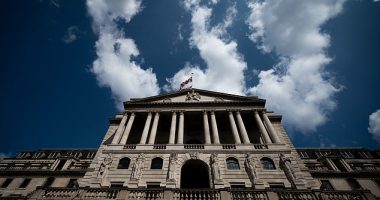MILLIONS of households claiming Universal Credit and certain benefits will get a pay rise in April.
Payments will rise from April 10 in line with inflation for September this year – 10.1%.
But the 10.1% rise from next April won’t apply to all benefits and there are nine specifically you should know about.
Universal Credit childcare costs
Universal Credit can sometimes help with the costs of childcare regardless of how many hours you’re working.
You might be able to claim up to 85% of the cost of childcare costs.
The amounts you can receive are:


- a maximum of £646.35 per month for one child
- a maximum of £1108.04 per month for 2 or more children
However, this amount won’t be going up from next April.
In fact, the cap has remained the same since 2005, despite childcare costs more than doubling since then.
But Chancellor Jeremy Hunt confirmed in the Spring Budget that the way in which it is paid and rates will increase in the summer.
Most read in Money
Child Benefit high income tax charge threshold
You may have to pay the High Income Child benefit Charge if you or a partner has an individual income over £50,000 and either:
- you or your partner get Child Benefit
- someone else gets Child Benefit for a child living with you and they contribute at least an equal amount towards their upkeep
This means you’ll have to pay some or all of the child benefit you receive back.
As it stands you pay back 1% of your child benefit for every £100 earned over £50,000.
You’re not entitled to any Child Benefit if you earn over £60,000.
But the £50,000 threshold is not going to change from April.
Local Housing Allowance
Local Housing Allowance (LHA) was introduced in 2008 and calculates the maximum amount people renting from a private landlord can claim in Housing Benefit or Universal Credit.
What you get through the allowance will depend on the area you live in and the size of your rental property.
LHA rates are set for 12 months and change on April 1 each year. However the rate from next April will be the same it currently is.
That means the way your Housing Benefit or Universal Credit allowance is calculated will stay the same – although people will receive different amounts depending on their circumstances.
Childcare element of Working Tax Credit
You can get an extra amount of Working Tax Credit to help cover the costs of childcare.
Both of the following must apply though:
- your child must be in “approved childcare”
- the childcare must be provided in-person, not online
But the amount you can get has been frozen since 2005/6 and that’s not changing from next April either.
That means the maximum support that a claimant can receive is £175 for one child and £300 for two children per week.
Family element of Child Tax Credit
Child Tax credit helps households struggling to raise a child due to a low income.
But you can get different amounts depending on your circumstances.
If all your children were born before April 2017, you could get the “child element” for all your children.
Plus, you’ll get the basic amount which is also known as the “family element”.
The family element is currently worth £545 a year. From next April this will be staying the same.
Bereavement support payment
You can this benefit if a partner died in the last 21 months.
But you must claim within three months of your partner’s death to get the full amount.
You can claim up to 21 months after their death but you’ll get fewer monthly payments.
Plus, you’re only eligible if your partner either:
- paid National Insurance contributions for at least 25 weeks in one tax year since April 6, 1975
- died because of an accident at work or a disease caused by work
Plus, when they died you must have been:
- under State Pension age
- living in the UK or a country that pays bereavement benefits
If you’re eligible, you’ll get a first payment and then up to 18 monthly payments. There are two rates.
Currently, the first payment on the higher rate is worth £3,500 then the following 18 payments are worth £350.
The first payment on the lower rate is £2,500 and then the following 18 payments are worth £100.
This will not change from next April.
Savings and Universal Credit
If you have savings then the amount of Universal Credit you get may change.
As it stands, if you’ve got any savings under £6,000 you won’t get any Universal Credit deducted.
Cash you have of between £6,000 and £16,000 counts towards your Universal Credit calculation though.
It’s treated as monthly income of £4.35 for every £250 over £6,000.
Any savings over £16,000 that you have yourself or as a couple means you won’t be entitled to Universal Credit.
The Department for Work and Pensions has confirmed these thresholds will remain the same from next April.
Tax credit withdrawal rate
Households receiving both working tax credits and child tax credits can have their allowance deducted if they go over over a certain threshold.
This threshold is rising from £6,770 to £7,453 a year from next April, however the “withdrawal rate”, the percentage of what is deducted for those who go over this limit, isn’t.
It will be staying at 41%.
This means families will be deducted 41p from their working tax credits and child tax credits for every £1 earned over the £7,453 amount.
Tax credit rise and fall disregard
Someone’s tax credit amount can go up or down each year depending on what they earned in the previous tax year compared with what they’re earning in the current tax year.
But, as it stands, the first £2,500 of any difference between someone’s previous year’s and their current year’s income is disregarded meaning what they get won’t change.
The income rise and fall disregard has been £2,500 since April 2016. From next April it will stay the same.
What help can I get instead?
Millions of Brits are missing out on other benefits that they’re entitled to adding up to billions of pounds in total.
Benefit calculators can help you check what you could be entitled to.
There are several benefit checker tools you can use – here’s our guide.
And successful claims to certain means-tested benefits and Universal Credit will ensure your eligibility for a free £900 cost of living payment.
Free cash is also available via your local authority thants to the Household Support Fund.
The government is pumping a further £842million into the pot of cash which councils are giving out.
The money on offer to residents varies by location so you’ll have to check to see what you can get and how your council will pay you once it receives its new budget.
Under the current Household Support Scheme, households can expect to receive hundreds of pounds in support.
Some councils have paid hard-up households up to £800 in free cash.
Residents can claim it to help with things like energy and grocery bills, rent arrears or council tax payments.
To get the help, you’ll need to check if you need to apply via your local council – as they are in charge of distributing the funding.
To find your local council, use the Gov.UK council finder tool.
If you’re struggling with energy bills specifically – speak to your supplier.
They will often offer plenty of energy grants and schemes to help you out if you’re struggling. Here’s a list of schemes open right now:
- British Gas Energy Trust Individuals and Family Fund
- British Gas Energy Trust
- EDF Customer Support Fund
- E.ON and E.ON Next Grants
- Octopus Energy Assist Fund
- OVO Energy
- Scottish Power Hardship Fund


There’s also a one-off fuel voucher from your energy supplier if you’re on a prepayment meter.










